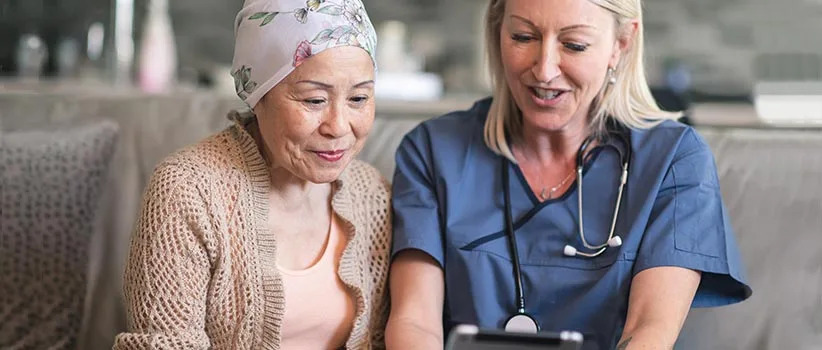Common Steps to Become an Oncology Nurse Practitioner
There are a number of common steps in order to obtain certification as an oncology nurse practitioner. Above all, the criteria include a number of educational and clinical practice requirements that are to be completed before becoming certified.
1. Become a registered nurse.
To become certified as an oncology nurse practitioner, you must first become a registered nurse (RN). Your RN license must be active during the time you decide to pursue your oncology nurse practitioner career. To obtain your RN license, you have to complete and pass the NCLEX-RN exam, which is administered by the National Council of State Boards of Nursing.
2. Apply to an oncology nurse practitioner program.
You must pursue an advanced degree for a nurse practitioner, such as a master of science in nursing (MSN). There are some programs that offer oncology as a concentration. To ensure that the program is providing you with the highest level of standards and ethics in the field, verify that your program is accredited by the Commission of Collegiate Nursing Education (CCNE) or the Accreditation Commission for Education in Nursing (ACEN).
3. Apply to take the oncology nursing exam.
Once you’ve completed the necessary educational and clinical experience steps to become an oncology nurse practitioner, you can pursue the oncology nurse exam administered by the Oncology Nursing Certification Corporation (ONCC).


